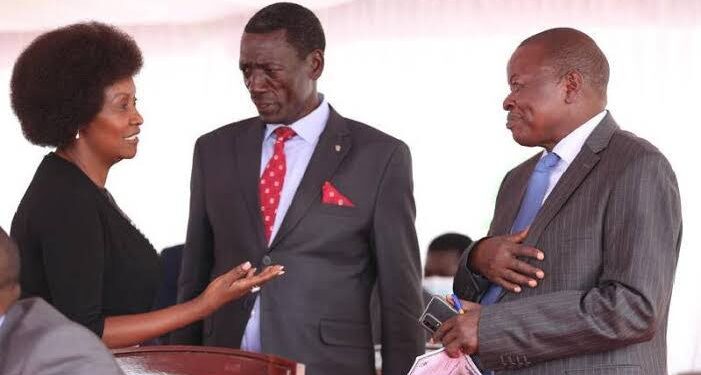The Reason Behind The New Intense Conflict Between Knut And Kuppet

A tense standoff characterizes the current state of the education sector in Kenya as the two primary teachers’ unions, the Kenya National Union of Teachers (KNUT) and the Kenya Union of Post Primary Education Teachers (KUPPET), find themselves in a fresh conflict. This clash is rooted in their divergent positions on proposed amendments to the Teachers Service Commission Act, reflecting a concerted effort by both unions to regain credibility and authority among their members.
The backdrop of this confrontation involves both unions grappling with the aftermath of a non-monetary Collective Bargaining Agreement (CBA) signed two years ago, which resulted in a decline in their standing among members. The proposed amendments to the TSC Act have emerged as a new battleground, with emotions running high during a public participation meeting convened by the TSC. KNUT has taken a leading role in resistance, refusing to attend the meeting and criticizing the proposed law changes as punitive to teachers. Secretary-General Collins Oyuu has articulated specific objections, emphasizing concerns about potential adverse effects on teachers.
While KUPPET attended a separate consultative meeting, they also expressed strong opposition to the proposed amendments, accusing TSC of being domineering and seeking excessive powers. Statements from Oyuu and KUPPET’s Secretary-General, Akello Misori, reveal long-standing tensions and power struggles between the unions, suggesting a renewed battle for teachers’ membership as they strive to reclaim influence after a period of passive negotiations.
In their submissions, both unions outlined their grievances with the proposed amendments. KUPPET criticized TSC for excluding them from salary reviews and highlighted the omission of Article 41 of the Constitution, safeguarding collective bargaining rights. KNUT raised concerns about TSC’s disciplinary approach, particularly the absence of strict rules of evidence in line with constitutional principles.
Behind the scenes, a quieter struggle unfolds as both unions vie to regain their influence and reassure members of their strength. Accusations fly between the two unions, with KNUT alleging collaboration between KUPPET and TSC and vice versa. The transfer of Junior Secondary School (JSS) teachers to KUPPET becomes a focal point of contention, with KNUT expressing dissatisfaction and accusing TSC of favoritism.
As the unions grapple with the proposed amendments, the fight for representation intensifies, highlighting a historical rivalry dating back to 1998 when KUPPET was established to counterbalance the influential KNUT. The current skirmish underscores the significance of membership wars that have plagued these unions since 2012, with old strategies to attract members resurfacing amid this educational upheaval.
